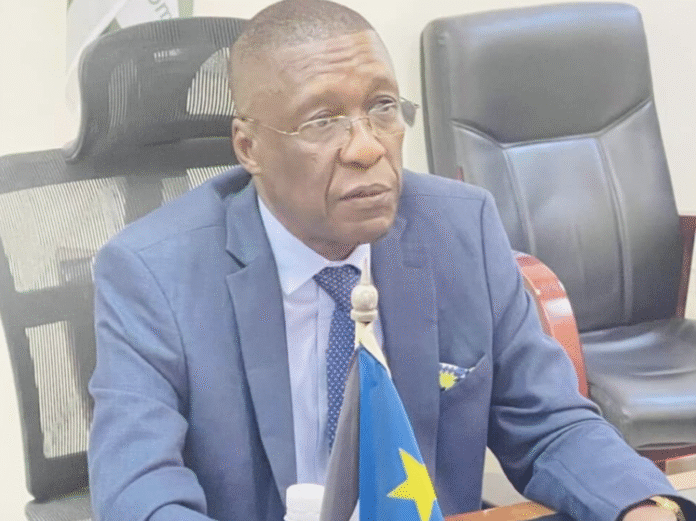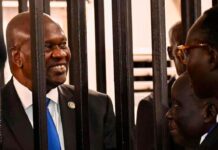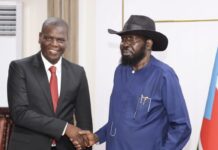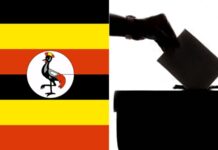The Reconstituted Joint Monitoring and Evaluation Commission, RJMEC, has issued a strong warning about the deepening political and security crisis in South Sudan, saying the peace process is in danger of total collapse.
Speaking during an extraordinary plenary session in Juba, RJMEC Chair Ambassador Major General (Rtd) George Aggrey Owinow, urged regional and international guarantors to urgently apply diplomatic pressure to break the political deadlock, enforce a ceasefire, and steer the country back on the path of peace and reform ahead of the 2026 elections.
RJMEC is calling on all parties to the revitalized peace agreement — including the government and opposition — to urgently engage in inclusive dialogue. The body also appealed for the immediate release of detained Chinese nationals and renewed commitment to implementing the R-ARCSS, a key part of the 2018 peace deal.
But while political leaders remain locked in disputes, the humanitarian situation on the ground is rapidly deteriorating. Conflict, coupled with seasonal flooding, has destroyed health infrastructure and crippled supply chains, leaving communities across the country vulnerable. RJMEC says this has further eroded trust in the peace process.
In his address, the RJMEC Interim Chairperson painted a bleak picture of the current state of the agreement.
He warned that internal power struggles, unilateral decisions, and military clashes between forces loyal to rival parties have undermined the ceasefire and called into serious question the commitment of the parties to the agreement — both in letter and spirit.
A recent audit conducted by RJMEC revealed that many of the agreement’s core institutions have been paralyzed.
The report pointed to a breakdown in responsibility-sharing arrangements at both national and state levels, affecting the functioning of the executive and legislature. With just over a year to go until the December 2026 elections, RJMEC says urgent steps are needed to revive institutions like the Joint Defence Board and other transitional security bodies.
In his remarks, the RJMEC Chair also highlighted continued engagement with regional leaders, including the Chair of the IGAD Heads of State and Government, President Ismail Omar Guelleh of Djibouti, and other senior African Union officials.
He said these briefings have focused on the escalating violations and explored ways to get the peace process back on track.
Meanwhile, Honorable Minister Elia Martin Lomoro provided a progress update on key reforms.
Lomoro said the Judicial Reform Committee has completed its work, and its final report is now awaiting presidential assent. The National Election Commission has completed more than 64 percent of its pre-election activities, and election institutions are now operational in six out of the ten states.
The Minister also highlighted the work of the Political Parties Council and the National Constitutional Review Commission, which are both making headway despite facing serious funding shortfalls.
He emphasized that these institutions are crucial for preparing a credible electoral process and completing constitution-making tasks.
However, Lomoro acknowledged that several challenges remain. These include limited funding for post-election activities and lingering disputes over key legal provisions.
Despite this, he expressed optimism that with sufficient political will and timely financial support, South Sudan could still meet its election targets.
RJMEC warned that South Sudan stands at a critical crossroads. Without immediate, coordinated action from all stakeholders — national, regional, and international — the progress made since the 2018 peace deal could be lost.
With the countdown to the 2026 elections underway, RJMEC is calling on all parties to recommit to dialogue, restore trust in the institutions, and uphold the revitalized peace agreement.
The Commission says the window of opportunity is narrowing but with unity, focus, and political courage, South Sudan can still stay on course for peace and democratic transition.





